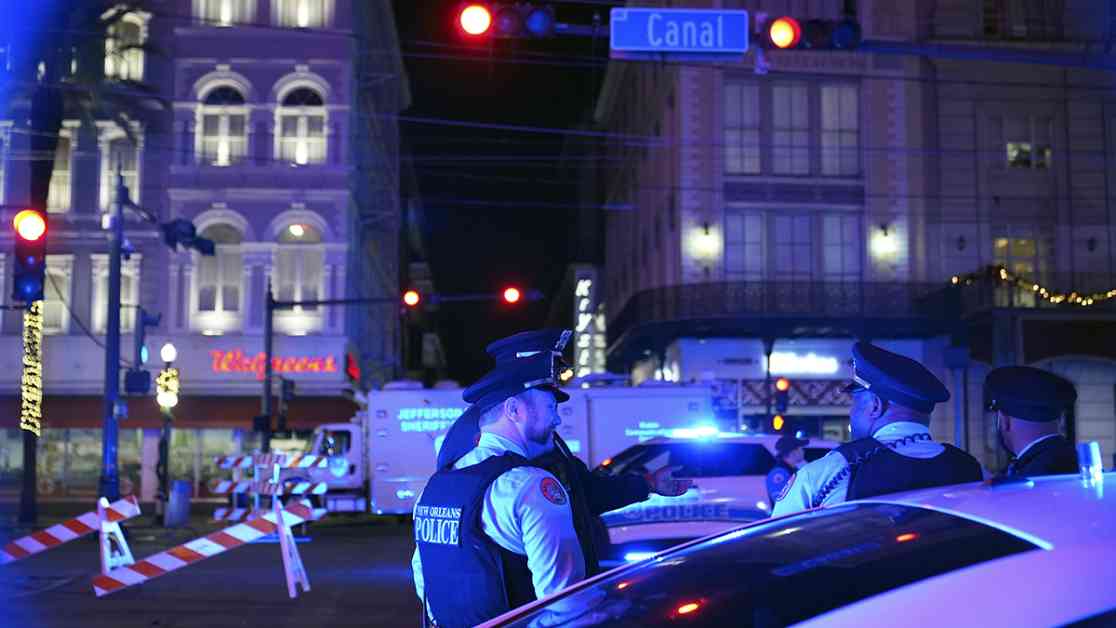Extremist Violence by Active Military & Veterans: New Orleans Attack & Vegas Explosion
In a shocking turn of events, the nation was rocked by two violent incidents on New Year’s Day that shed light on the increasing involvement of individuals with military backgrounds in ideologically driven attacks. The first incident occurred in New Orleans, where Shamsud-Din Jabbar, a U.S. Army veteran, went on a deadly rampage in a pickup truck, leaving 14 dead and dozens injured before being killed by police. The attack is being investigated as an act of terrorism inspired by the Islamic State group. Meanwhile, in Las Vegas, Matthew Livelsberger, an active duty member of the U.S. Army Special Forces, shot himself in the head in a Tesla Cybertruck packed with explosive materials, causing an explosion that injured seven people.
Explosive Revelations
Federal investigators revealed that Jabbar used a rare explosive compound in the two functional IEDs he placed before the attack in New Orleans. The explosive has never been used in a U.S. or European terror attack, raising questions about how Jabbar acquired the knowledge to create such a potent homemade explosive. Additionally, the FBI and ATF confirmed the discovery of bomb-making materials at Jabbar’s residence in New Orleans and a trailer in Houston, suggesting premeditation in the attack.
Rising Radicalization Among Military Personnel
An Associated Press investigation found that radicalization among veterans and active duty service members has been on the rise in recent years. While the number of individuals with military backgrounds involved in extremist plots remains small, their participation has increased the potential for mass injury or death in these attacks. Data from terrorism researchers at the University of Maryland revealed that military members were more likely to be involved in plots with mass casualties, weapons training, or firearms, emphasizing the severity of the issue.
Root Causes and Concerns
Kristofer Goldsmith, CEO of Task Force Butler Institute, highlighted the bipartisan nature of the problem of violent extremism in the military. He expressed concern over the potential implications of the new administration’s approach to addressing extremism and urged a united effort to combat this pressing issue. Goldsmith’s insights shed light on the complex challenges posed by extremist ideologies within the military and the urgent need for comprehensive solutions to safeguard against future attacks.


